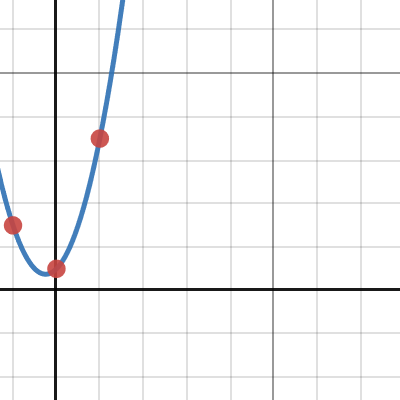reggiwilliams
Junior Member
- Joined
- Mar 6, 2024
- Messages
- 50
First task is to calculate the values of a, b & c .I am revising Calculus at present and area between curve and axis.
Came across this question which involves integration but not sure how to prove
Can anyone assist please
y1-y3y1= a -bh + ch^2
y2=a
y3= a+bh +ch^2
Not sure what to do from here
You can solve for b, then c.So we know y1-y3=2bh
You're missing some parentheses.So I get b=y1-y3/2h and c =3y^3-2y^2-y1/h^2
Where do I go from there?
What does your class-notes say?Where do I go from there?
so far so good.How am I doing so far
Evaluate the "definite integral" by using integration limitsHow am I doing so far
First, y1−y3=−2bh⟹b=−2hy1−y3No matter I do can’t get to answer Hate this question
I suggest that you first integrate the original function (using a, b, and c) from -h to h and write an expression for the area in terms of a, b, c; then replace those with the expressions you were given for them.I’m sorry but even following your calculations for b and c still can’t arrive at answer given for area
Could I please ask you for your full workings so that I can understand where I have gone wrong

My workings are shown and clearly answer should be h/3(4y2+y1+y3) No wonder I could never prove answer given in questionNote that the result differs from the claim in the problem, which lacked a coefficient of 4.
The correct result amounts to Simpson's Rule for n=2.
I confirmed it in Desmos:

Desmos | Graphing Calculator
www.desmos.com
Thanks so much for your help∫−hhy2+(2hy3−y1)x+(2h2y1−2y2+y3)x2dx
=y2x+(4hy3−y1)x2+(6h2y1−2y2+y3)x3∣∣∣∣∣−hh=[y2h+(4hy3−y1)h2+(6h2y1−2y2+y3)h3]−[−y2h+(4hy3−y1)(−h)2−(6h2y1−2y2+y3)h3]
=[h×66y2+y1−2y2+y3]−[h×6−6y2−y1+2y2−y3]
6h[(4y2+y1+y3)−(−4y2−y1−y3)]=6h(8y2+2y1+2y3)=3h(4y2+y1+y3)
